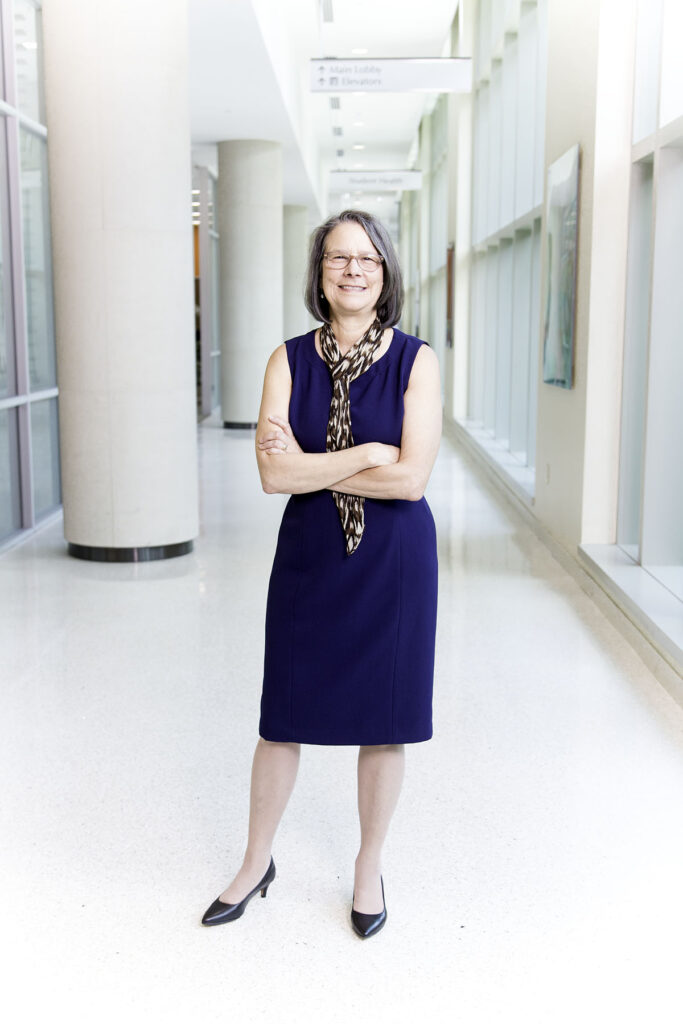Meet Donna Coker, scholar, researcher and leader in the Movement to End Gender Violence
By Isabella Vaccaro

In February 2014, Donna Coker, a law professor at the University of Miami, co-hosted a conference called Converge! Reimagining the Movement to End Gender Violence at UM’s School of Law. The conference’s name epitomized its mission and brought together activists and academics, all of whom were involved in cutting edge change. For Coker, an early researcher and expert in intimate partner violence law and policy, what was most important was to spread the word about this reformative work.
Thus, began a beautiful partnership between Coker and longtime friend and colleague Sanjeev Chatterjee, a professor at the University of Miami School of Communication and founder and president of Media for Change.
“I have, for a long time, been really aware of his [Chatterjee’s] remarkable vision, his ability to translate complicated ideas in ways that are accessible and quite brilliant, so when he came to me with this project, I was eager to be involved from my side,” Coker said of her collaboration with Media for Change, which aims to explain a significant rethinking of the Movement to End Gender Violence in digestible ways to wider audiences.
And Coker’s background has undoubtedly placed her in a position to lead these types of discussions—she’s been a scholar and researcher of topics like criminal law and gender-based violence since the mid-’90s, was a social worker in shelters and community-based domestic violence projects and practiced family and criminal law. Now, Coker says she is dedicated to her scholarship and, more specifically, to supporting work that “reimagines” how to deal with gender violence.
“Part of the reimagining effort is to move away from a criminal justice focus,” said Coker. “A lot of violence against women, and particularly women of color, is actually perpetrated by the criminal legal system. But another reason is that many, many victims never engage with the criminal legal system, and when they do, many of them have very poor experiences.”
Coker says the idea is focus policy and activism towards getting at the roots of why violence happens. And one of the main reasons it does happen, Coker has found, is due to economic inequality. “It’s not the only piece, and it’s not a simple piece, but research shows, for example, that repeated bouts of male unemployment are tied to male-on-female domestic violence,” said Coker.
“Reimagining is investing in people. It’s about addressing structural inequalities that create and support violence.”
For one thing, Coker says allying with anti-poverty organizations to create transitional housing options is a part of violence prevention. She adds that “reimagining is also about realizing the role that experiences of trauma play in perpetrating violence.” Trauma centers that offer therapeutic intervention can be an important part of prevention, as well.
However, Coker, her colleagues and others in favor of restorative justice have faced their fair share of criticism from the media and proponents of the criminal justice system. “There have been successful efforts now documented by mainstream anti-domestic violence movement people to shut down research and publications that were counter to a view that all domestic violence was about power and control and that punitive responses were the only way to hold someone accountable or responsible.”
And though this “orthodoxy” surrounding the criminal justice system and domestic violence cases in the U.S. has begun to soften, Coker says there is more to be done. In the wake of Covid-19, economic hardship has befallen a large portion of the population. Coker is careful to note that it is too early to know if there are increased incidents of domestic violence as a result of the pandemic. Anecdotal reports based on calls to helping agencies does not necessarily mean there is an increase in incidents. It may mean that there are fewer resources – family, church, or other services – available for victims. “But what we do know is that in the big picture and over time, addressing economic strain is critical to the well-being of people and to violence prevention,” she notes.
Coker adds one last sentiment, alluding to a next topic of pertinent conversation. “Everything we understand, if you care about violence, if you care about gender-based violence, then you should care very much about economic justice. That should extend [to] the conditions of people in prison,” said Coker.
“It’s dire, it’s horrendous.”


